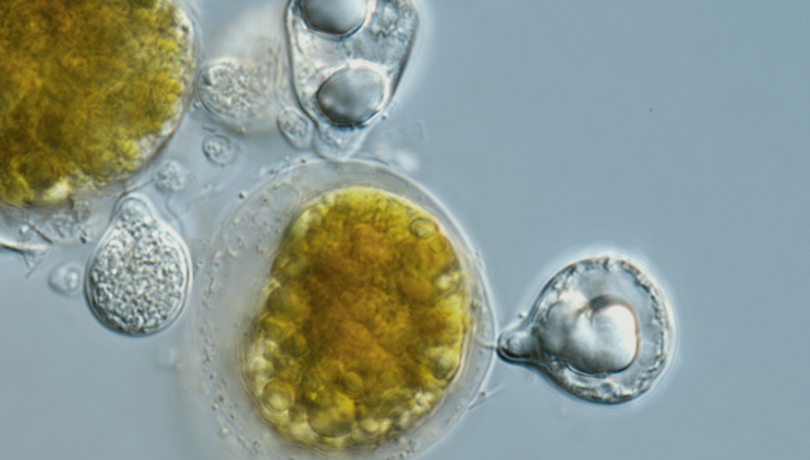The ICM-CSIC is one of the coordinators of this initiative that aims to add aquatic fungi to biodiversity monitoring programs across Europe.

The European project, MoSTFun (acronym of "Monitoring Strategies and Tools to address knowledge gaps on aquatic Fungal biodiversity"), which counts with the Institut de Ciències del Mar (ICM-CSIC) as one of its coordinators, will help monitor the biodiversity of aquatic fungi across Europe. The initiative, funded through the Biodiversa+ EU Biodiversity Partnership, aims to provide monitoring strategies and tools to fill current knowledge gaps on aquatic fungal biodiversity.
Aquatic fungi, i.e. fungi living in freshwater and marine ecosystems, are tiny in size, but play hugely important roles in ecosystems, for instance as microbial decomposers of terrestrial plant litter in streams and lakes, and decomposers and parasites of phytoplankton in lakes and coastal waters. Research has also shown that aquatic fungi are well suited to be used in biomonitoring of environmental status of aquatic ecosystems.
“Society is aware of the biodiversity loss occurring for higher organisms, like animals and plants. However, it occurs at all levels, including microorganisms that conduct most important functions in nature. Therefore, the monitoring and understanding of key organisms like aquatic fungi is needed to protect aquatic ecosystems. This is especially required in marine systems, including coastal and estuarine areas, where the study of these organisms has been traditionally neglected”, exposes Albert Reñé, CSIC lead researcher responsible for MoSTFun
Including aquatic fungi in biodiversity monitoring programs
Over the next three years, MoSTFun will develop the tools and knowledge needed to include aquatic fungi in biodiversity monitoring programs. MoSTFun unites scientists, biomonitoring experts and conservation professionals, and establishes collaborations with existing monitoring programs to ensure that aquatic fungi find their place in biomonitoring programs. MoSTFun will also closely interact with stakeholders and end-users to create the motivation and momentum for uptake of the tools and knowledge generated by MoSTFun into biodiversity policy.
“Aquatic fungi contribute disproportionately to the good functioning and stability of ecosystems. If we as a society care about the health of ecosystems, we need to understand and monitor how the biodiversity of aquatic fungi is changing across space and time, and for this we need their inclusion in standardized biomonitoring programs. MoSTFun is making the first steps towards this goal.”, explains Andreas Bruder of SUSPI, coordinator of MoSTFun.
The MoSTFun consortium includes experts in molecular ecology, mycology, ecology, earth observation, conservation, and biomonitoring from research teams based in Estonia, Germany, Italy, Norway, Spain, Sweden, Switzerland, Canada, and the United States.